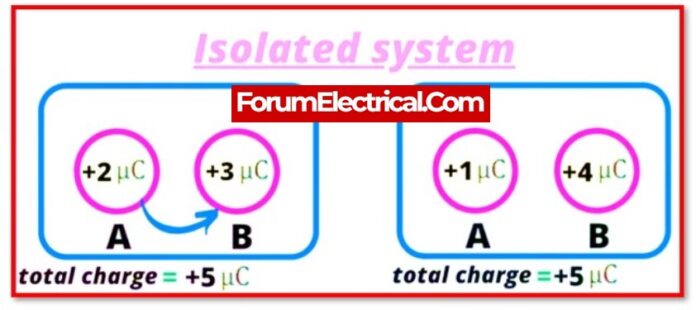The law of conservation of charge is a principle in physics that states that the total electric charge in a closed system remains constant over time. This means that the amount of positive charge in a system cannot increase or decrease unless charge is added to or removed from the system.
The law of conservation of charge is based on the idea that electric charge is a fundamental property of matter, and that it cannot be created or destroyed. This principle is similar to the conservation of mass and the conservation of energy, which state that mass and energy cannot be created or destroyed, only transformed from one form to another.

The law of conservation of charge has been experimentally verified and is an important concept in many areas of physics, including electricity and magnetism, particle physics, and astrophysics. It is a fundamental principle that underlies the behavior of electric and magnetic fields, and is used to predict the behavior of charged particles in various situations.
The law of conservation of charge is not violated in any known physical processes, and it is considered a fundamental law of nature. It is a cornerstone of modern physics and is a key component of many theories and models that are used to understand the behavior of the universe.









